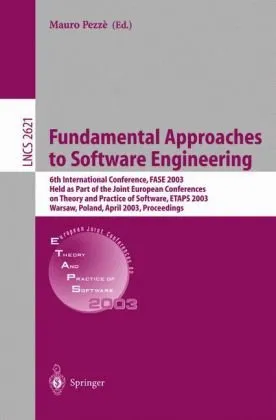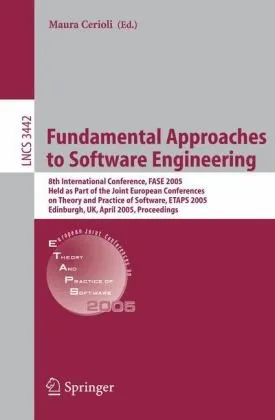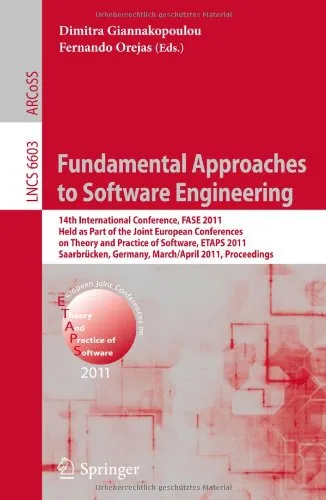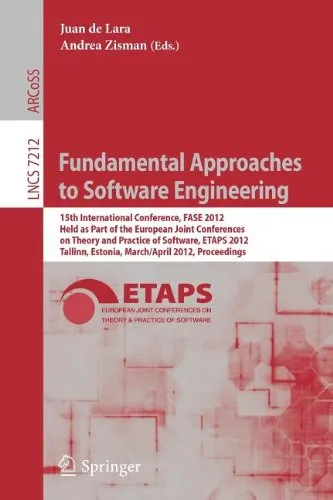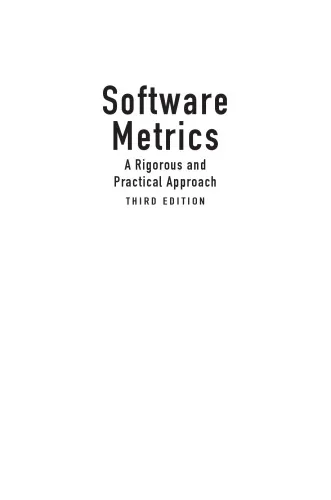Fundamental Approaches to Software Engineering: 10th International Conference, FASE 2007, Held as Part of the Joint European Conferences, on Theory and Practice of Software, ETAPS 2007, Braga, Portugal, March 24 - April 1, 2007. Proceedings
4.5
Reviews from our users

You Can Ask your questions from this book's AI after Login
Each download or ask from book AI costs 2 points. To earn more free points, please visit the Points Guide Page and complete some valuable actions.Related Refrences:
Introduction to "Fundamental Approaches to Software Engineering: FASE 2007"
Software engineering has grown exponentially in complexity and importance in recent decades, necessitating robust methodologies, tools, and practices. The book "Fundamental Approaches to Software Engineering" (FASE 2007) is a meticulously curated collection of research and insights presented at the 10th International Conference on Fundamental Approaches to Software Engineering. This event was held as part of the European Joint Conferences on Theory and Practice of Software (ETAPS 2007), a leading platform for fostering innovation in software engineering. Hosted in the beautiful city of Braga, Portugal, the conference brought together some of the brightest minds in the field, culminating in a publication that is as academically rich as it is practically applicable.
The book captures the cutting-edge advancements shared during the event, focusing on theoretical frameworks, practical techniques, and tool support for constructing high-quality software systems. It serves as an essential resource for researchers, practitioners, and students who are navigating the evolving landscape of software engineering. By bringing together a diverse range of topics, the book highlights the importance of integrating theoretical understanding with real-world applicability.
Detailed Summary
This book is organized into carefully selected contributions that reflect the current state of the art in software engineering. It encompasses a variety of areas, including formal methods, software design, analysis techniques, verification, testing, and optimization. Each paper included in these proceedings enriches the discourse with innovative approaches and case studies that address the challenges of creating reliable, scalable, and maintainable software.
Some notable highlights include discussions on model-driven development, automated verification techniques, and dynamic program analysis. The interplay between formal methods and practical applications is a recurrent theme, illustrating how rigorous analysis can lead to actionable improvements in software quality. The integration of domain-specific modeling, advanced type systems, and scalable algorithms finds a prominent place, ensuring balance between innovation and feasibility.
FASE 2007 also looks ahead at trends such as the rise of concurrent and distributed systems, and explores formal approaches to address their complexity. By combining theoretical depth with practical insights, this book equips readers with tools and methodologies that are not just forward-looking but also grounded in real-world utility.
Key Takeaways
- An in-depth exploration of fundamental methods such as formal modeling, verification, and testing in software engineering.
- Insights into the challenges facing modern software development, including concurrency, scalability, and dynamic systems.
- Application of theory in practice, showcasing case studies and tools that support improved software quality.
- Emerging research topics, including the evolution of programming paradigms and their implications on system design.
- A broad perspective on how software engineering interfaces with other disciplines, including mathematics, logic, and human-computer interaction.
Famous Quotes from the Book
"Software engineering is not merely about building systems that work; it is about building systems that last, adapt, and inspire confidence in their users."
"The integration of formal methods with practical tools is the key to bridging the gap between theoretical soundness and industrial applicability."
Why This Book Matters
"Fundamental Approaches to Software Engineering: FASE 2007" isn't just a record of a conference; it is a testament to the innovative spirit of the software engineering community. The book chronicles advancements that have undoubtedly shaped modern software development practices, laying the foundation for future breakthroughs. By addressing foundational issues alongside practical challenges, it serves as a timeless reference for those in academia and industry alike.
The book's multi-disciplinary approach is one of its key strengths. It doesn't just focus on software systems in isolation; instead, it places them within the broader context of computer science, mathematics, and engineering. This perspective is particularly important in today's interconnected world, where robust and adaptable software systems form the backbone of industries, governments, and everyday life.
For researchers, the book provides a treasure trove of ideas that have inspired further inquiry and innovation. For practitioners, it offers methodologies and tools that can be directly applied to improve software quality. For students, it is an invaluable resource for understanding the theoretical underpinnings that support good software development practices.
In short, "Fundamental Approaches to Software Engineering: FASE 2007" is a must-read for anyone who wants to contribute to or understand the state of modern software engineering. Its combination of depth, breadth, and real-world relevance ensures that it continues to be a valuable resource for years to come.
Free Direct Download
You Can Download this book after Login
Accessing books through legal platforms and public libraries not only supports the rights of authors and publishers but also contributes to the sustainability of reading culture. Before downloading, please take a moment to consider these options.
Find this book on other platforms:
WorldCat helps you find books in libraries worldwide.
See ratings, reviews, and discussions on Goodreads.
Find and buy rare or used books on AbeBooks.
1236
بازدید4.5
امتیاز0
نظر98%
رضایتReviews:
4.5
Based on 0 users review
Questions & Answers
Ask questions about this book or help others by answering
No questions yet. Be the first to ask!
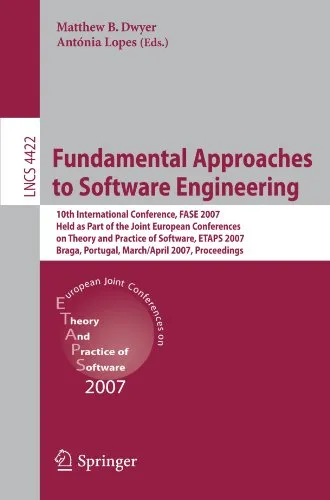
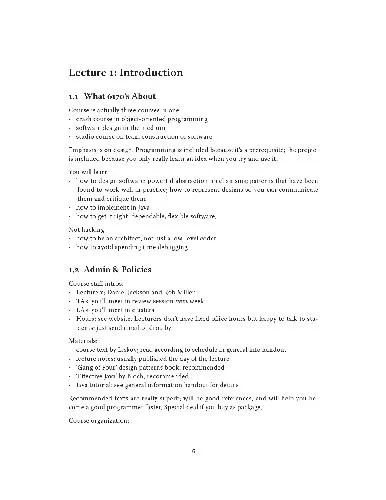
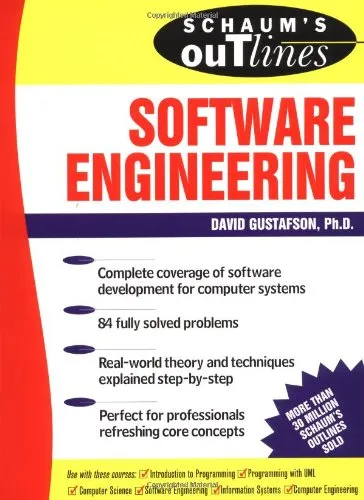
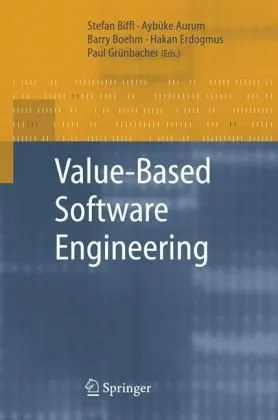

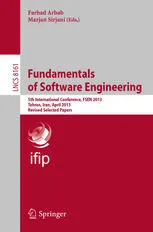
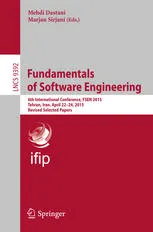
![Fundamentals Of Software Engineering, 5Th Ed [Paperback] Mall](https://s3.refhub.ir/images/thumb/Fundamentals_Of_Software_Engineering__5Th_Ed__31573.webp)
